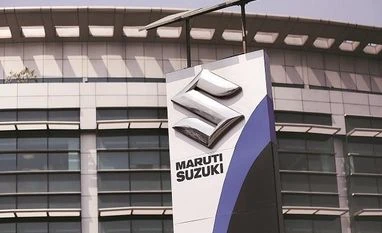Top carmaker Maruti Suzuki hopes govt will support green tech beyond EVs
India's taxes on hybrid cars range as high as 43%, compared to the low rate of 5% for EVs, which also stand to benefit from billions of dollars in incentives to companies that build them domestically
)
India's top-selling carmaker, Maruti Suzuki, believes the government will show support for "green" car technology beyond full electric vehicles (EVs), such as hybrid, if it benefited the country, the company's chief executive said.
The comments come after Maruti unveiled its first strong hybrid car in India, the Grand Vitara sport-utility vehicle (SUV), seen as key to helping recover ground lost to competitors such as Hyundai Motor and Kia Motor.
India's taxes on hybrid cars range as high as 43%, compared to the low rate of 5% for EVs, which also stand to benefit from billions of dollars in incentives to companies that build them domestically.
Asked how talks with the government were progressing to secure lower taxes for hybrid cars, Chief Executive Hisashi Takeuchi said he thought government support would be forthcoming.
"The government's support to EVs is good ... to support some more green technology is even better," he said on Wednesday. "I believe the government will support all technologies as far as they are good and contribute to a better India."
Also Read
Maruti has said it will not launch an all-electric model before 2025, and even then, Takeuchi said, decarbonisation plans cover other clean technologies, such as compressed natural gas (CNG), bio fuels, flex fuel and hybrids.
The first model to be developed by parent company Suzuki Motor Corp in a global alliance with Toyota Motor Corp, the Grand Vitara, unveiled on Wednesday, will be built at the latter's India factory.
Its strong hybrid power train from Toyota will offer mileage of nearly 28 km (17 miles) a litre of gasoline. It will also have Suzuki's mild hybrid power train with a mileage of about 21 km (13 miles) a litre.
Maruti will export the vehicle to countries in Africa, South America and the Middle East, Takeuchi said.
With the launch of the Grand Vitara set for September, Maruti enters a segment that contributes a fifth of car sales in India.
Takeuchi said he hoped to take Maruti's market share back to half as it launches more models in the fast-growing SUV segment. Its share fell to 43% in the fiscal year to March 2022, versus 51% in March 2019.
(Reporting by Aditi Shah; Editing by Clarence Fernandez)
(Only the headline and picture of this report may have been reworked by the Business Standard staff; the rest of the content is auto-generated from a syndicated feed.)
More From This Section
Don't miss the most important news and views of the day. Get them on our Telegram channel
First Published: Jul 21 2022 | 11:15 AM IST


